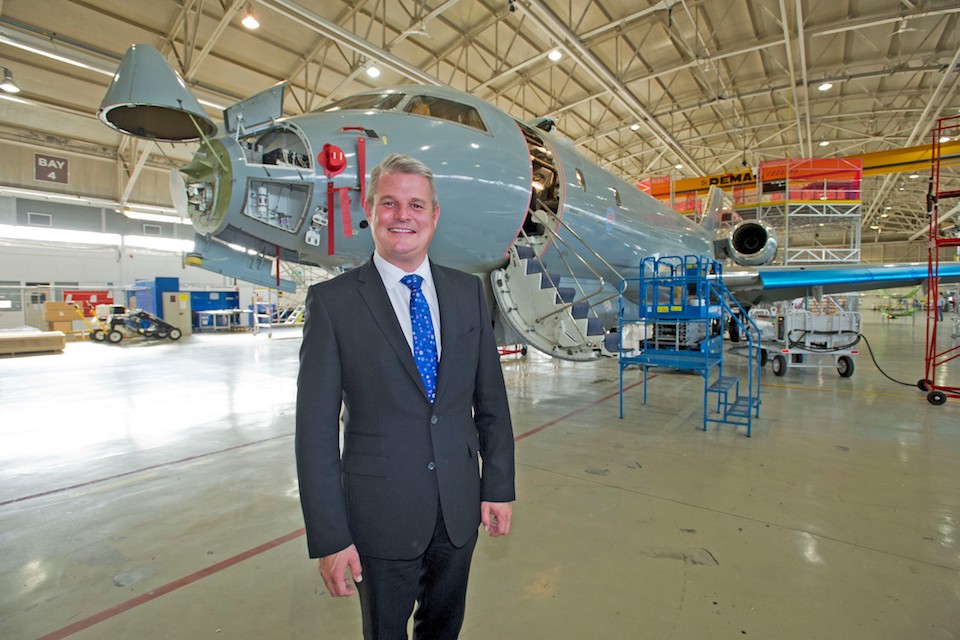Thank you, Mr President, for hosting me today, and for your very warm welcome to Nairobi.
I’m delighted to be paying my first visit to Kenya – and indeed the first by a British Prime Minister for 30 years.
Like the many thousands of British tourists who come here every year, I will take away unforgettable memories of this country’s vibrancy and its beauty.
Kenya holds a special place in the hearts of the British people and our countries share, as you have said, a long history that has left us deeply connected to one another.
Indeed, it was here that our monarch learned she would become Queen.
But the relationship we hold is about much more than those deep historical ties.
And today we have looked to the future and to a renewed partnership that will unlock the incredible potential of the next generation to benefit both our countries.
And we have agreed to build on the strong foundations of our relationship as we step up our cooperation to secure the prosperity and security that our people need and deserve.
We discussed today how the UK can work with you as you take forward your Big 4 agenda to transform Kenya – aligning our expertise, our investment and our aid behind that vision.
The UK is already the largest foreign investor in Kenya and I have set out this week our ambition to be the G7’s number one investor in Africa by 2022.
So as Britain prepares to leave the European Union we are committed to a smooth transition that ensures continuity in our trading relationship with Kenya, ensuring Kenya retains its duty-free, quota-free access to the UK market. And to building on our strong trade and investment ties to create even more opportunities for our businesses and for our consumers.
Mr President, yours is a country of huge opportunity, in a continent of dynamic young people who have the potential to play a transformative role in driving Africa’s growth in the years ahead.
Together we will make sure the next generation of energetic, ambitious Kenyans can get good, well-paid jobs so they can contribute to Kenya’s long-term prosperity. That’s not just good for Kenya, it’s good for the UK too.
And we’ll work with you and with governments across Africa to make sure your young people have the skills that businesses on the continent need to drive economic growth.
This is a partnership for opportunity but it’s also a partnership for our shared security and stability.
And today we discussed the work we’re doing together to make both our countries – and the world – more secure. Already, British terrorists and child abusers are in UK jails because of our cooperation.
This afternoon we have signed a new compact that will see us expand our joint work on security even further.
The UK is no longer just training our own military in Kenya, but training with Kenyans to promote stability in East Africa and beyond and to build the continent’s capacity to overcome its own challenges and deliver its own security.
Later today I will see our militaries training together in the techniques to identify and destroy improvised explosive devices.
The UK continues to support the commitment of the brave Kenyan soldiers fighting in Somalia against Al Shabaab. And I will announce a new package of funding to support the African Union mission in Somalia.
Mr President, I was glad to hear you call for a transition from peacekeepers to stronger Somali security forces. This is what the UK wants too, and as we work towards this we are leading international efforts to ensure AMISOM has the funding it needs to support its vital battle against terror.
We also spoke about the pernicious effects of corruption in Kenya. And I welcome the commitment you have made to drive this vice from your country, and we stand with you in this fight.
And today, as you’ve said, we signed an agreement to ensure that any proceeds of corruption in Kenya that end up in the UK will be given back to the Kenyan people and spent for their benefit.
I also welcome, Mr President, your commitment to political reconciliation in this country. The UK stands ready to support an inclusive Building Bridges process as you work to further strengthen your democracy and your institutions.
Mr President, as I conclude my visit this week to some of the UK’s most important African partners I have reflected on the role my country can play in partnership with this vibrant continent in the future.
As I have said this week, I want to ensure that the UK’s relationship with Kenya and with Africa is more and more about private investment, about doing business and making the most of commercial opportunities together.
Here, as elsewhere in the continent, we are using our aid and our investment partnerships to lift countries out of poverty, spread stability, and create jobs and prosperity for the future.
The UK and Kenya are two strong, diverse countries. We are partners in the Commonwealth, and global hubs – open to the world.
We thrive because of the entrepreneurship and innovation of our people, the strength of our democracies and our shared values.
Our cooperation today makes our people safer, more prosperous and more secure – here in Kenya, and in the UK.
Mr President, I will leave Nairobi excited by the huge opportunities of Kenya and of this continent. And I look forward to working with you in the years ahead for the benefit of both our countries.
